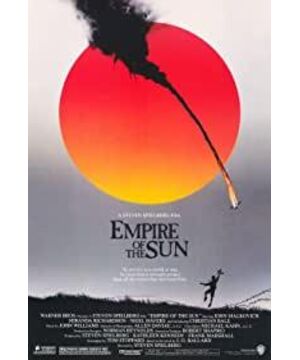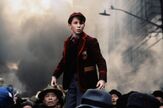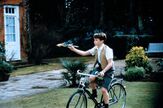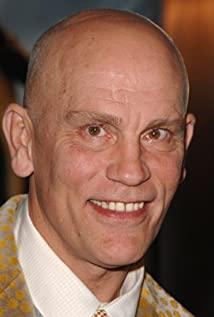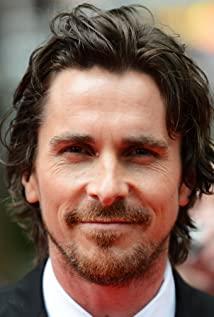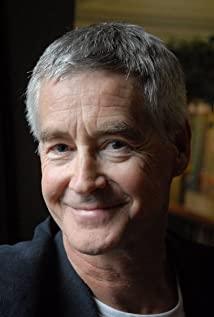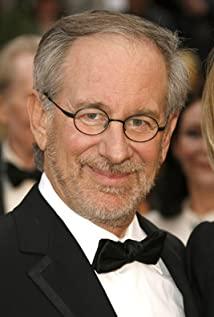For a long time, Chinese people who pretend to be deeply relish the shining humanity of the uncle's "Schindler's List" and "Saving Private", while straight-natured Chinese people have been unable to let go of the sweet memories of "Indiana Jones" and "ET". To sum it up with a popular point of view, Spielberg, who has been named a master, has become a cultural pioneer in Hollywood to convey the mainstream values of American society to the world. I have never rejected Hollywood’s positive value transfer. I also admit that I have watched far more foreign films than mainland films, Hong Kong and Taiwan films, especially American and French films. But thanks to the country I love, I have always held a cautious or skeptical attitude towards any form of ideological delivery system. I always like to find something behind the universal ultimate humanistic will that the film director is eager to express. Something else. This is a somewhat gloomy habit, but at least it makes me sober. It made me dare not just kneel in front of a so-called movie master to lick his feet. So, after I carefully searched the film for a long time, I finally saw a real Spielberg, a real Jewish old man in "Empire of the Sun", which is very good.
The background of the story is set in the concession of Shanghai during World War II. Jim, a British child from a middle-class family, was separated from his family while on the run, and started his three-year arduous life as a prisoner in a concentration camp in the Japanese-occupied area. This version of the Orphans of the Fog in the concentration camp has matured in their interactions with all kinds of people in the captive camp. They have learned the survival skills of the law of the jungle that cannot be taught in mission schools, but at the same time they have learned to respect others and their own personalities. Children are ignorant of wars between nations, but wars do more harm to children than adults. The lack of self-protection ability makes children's body and mind more vulnerable to destruction. However, this film that describes wars and troubled times from the perspective of children is destined to give us a warm ending, even though the process is so difficult.
I don't deny that when I just finished watching this film, I felt a little uncomfortable in my heart, but it was definitely not as uncomfortable as some people were eating a fly. First of all, the image of the Chinese in the film is indeed not very tall. Locust-like fleeing crowds, beating and robbing Jim’s Shanghai bastards, cold-blooded nurses and beers, blind currents who steal food for survival, and even unmannered Eighth Route Army soldiers (the Eighth Route Army was wearing a red five-star hat in 1945?) . In fact, I just want you to recall a simple old saying: Canglin knows the etiquette. In that troubled world, survival is more important than anything else, and everything else is bullshit. Although the people portrayed by the uncle are numb and indifferent, combined with the vulgar pragmatism value orientation of the current people and the moral system to be rebuilt, unfortunately, I think the film narrative is true and credible. In 1987, the government used 10,000 Shanghai citizens to help film more than 20 days of location. In addition, I heard the news that "Empire of the Sun" was screened on six central movie channels some time ago. I began to admire the mind of CCTV. It must be an edited version of radio and television.
Secondly, many children's shoes after watching the movie believe that Jim's understanding of war is one-sided, and even lacks the concept of right and wrong. Therefore, the director's desire to express anti-war through Jim is also incomprehensible or failed. But what I want to say is, is it true that adults must have a correct understanding of war? Is your concept of right and wrong necessarily correct? No one is qualified to accuse others of the value judgment of war. This is because war itself is an irrational behavior that cannot be judged by value. Yes, Jim in the movie likes Japan’s Zero Fighter (one of the outstanding World War II fighters I also like very much), worships soldiers, and even made friends with Japanese kamikaze pilots and sings Welsh for them when they go out in battle. carol. But Jim is just a child, an English child. He has not received any anti-Japanese education. The land where the war is fought is not his hometown, and the displaced people around him are not his robe. Like the director, he is just a spectator or witness of history. Look at the children or adults around us, aren’t they obsessed with the Nazi uniforms and the Iron Cross? There is a fundamental difference between the compassion for the encounters of others and the pain of one's own skin. There is no need for the citizens of big countries to be entangled here and look petty. On the contrary, I feel that it is Jim's fascination with Japanese fighters and pilots in the film that makes the film more real. War is not a simple binary opposition in the traditional Chinese arena. War is mixed with too many incomprehensible contradictions and melancholy, especially for third parties. Therefore, it is meaningless to compare this movie with the later "Schindler's List" of the Jewish Uncle. Although in the eyes of Chinese people, this work is not perfect. However, there is often a certain gap between perfection and reality. Spielberg had no intention and could not take care of the feelings of all groups in film creation. The reason why he chose to express his desire for human innocence and peaceful life with a child’s value-free vision was to get rid of the prejudices or prejudices of different groups. It is the bondage of prejudice. Let alone the effect, but the effort itself is worthy of recognition. Knowing this true Spielberg, you will only smile at his opposition to China on the Darfur issue in Sudan and his refusal to accept the Olympic art consultant. Under the prestigious reputation, it is actually difficult. Uncle Spielberg, who has been labeled as a master of art, is, above all, an ordinary person with personal emotions, sorrows, and weaknesses. Why should we ask other people's thoughts to follow our hearts only based on our own feelings? It doesn't make sense, and it's not necessary.
Like "Letters from Iwo Jima," the film did not use blood and killing to directly express the cruelty of the Japanese and the war, which made many Chinese audiences not too cold. However, as Spielberg, who has always advocated the political innocence of films, he has used a gentle way to express his attitude towards war and the Japanese in the film, beating Japanese soldiers captured in concentration camps at will, and dying like ants while migrating. The captives, the confusion and helplessness in Jim's eyes, a porridge of 87 bugs, all these make us have a deep fear of war. And this is far more shocking than the battlefield with corpses all over the field. In addition, considering that the protagonist is a British boy, too much plasma and corpses in the lens are not appropriate. The beautiful and pure picture, like the protagonist Jim's heart, can better reflect the filth and ugliness of war.
By the way, the expression and body language of the young Christian Bale, who plays Jim, are all in place. This has nothing to do with his childhood experience of participating in stage plays. So at the beginning of the film, it was difficult for me to put that strong and fragile little boy. The boy is connected with our great Batman. There was such a dazzling appearance at an early age, and it is even more commendable that he can still have the acting skills that have been exhausted after he has grown up.
This is a sincere anti-war movie, but it may not be as simple and beautiful as a traditional war movie. This is a real Spielberg, but it may not shine the human aura you presupposed.
View more about Empire of the Sun reviews


